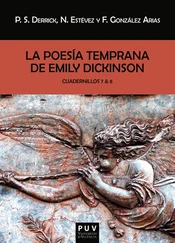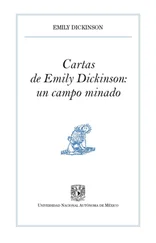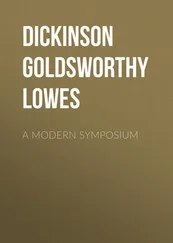Goldsworthy Dickinson - Appearances - Being Notes of Travel
Здесь есть возможность читать онлайн «Goldsworthy Dickinson - Appearances - Being Notes of Travel» — ознакомительный отрывок электронной книги совершенно бесплатно, а после прочтения отрывка купить полную версию. В некоторых случаях можно слушать аудио, скачать через торрент в формате fb2 и присутствует краткое содержание. Жанр: foreign_antique, foreign_prose, на английском языке. Описание произведения, (предисловие) а так же отзывы посетителей доступны на портале библиотеки ЛибКат.
- Название:Appearances: Being Notes of Travel
- Автор:
- Жанр:
- Год:неизвестен
- ISBN:нет данных
- Рейтинг книги:5 / 5. Голосов: 1
-
Избранное:Добавить в избранное
- Отзывы:
-
Ваша оценка:
- 100
- 1
- 2
- 3
- 4
- 5
Appearances: Being Notes of Travel: краткое содержание, описание и аннотация
Предлагаем к чтению аннотацию, описание, краткое содержание или предисловие (зависит от того, что написал сам автор книги «Appearances: Being Notes of Travel»). Если вы не нашли необходимую информацию о книге — напишите в комментариях, мы постараемся отыскать её.
Appearances: Being Notes of Travel — читать онлайн ознакомительный отрывок
Ниже представлен текст книги, разбитый по страницам. Система сохранения места последней прочитанной страницы, позволяет с удобством читать онлайн бесплатно книгу «Appearances: Being Notes of Travel», без необходимости каждый раз заново искать на чём Вы остановились. Поставьте закладку, и сможете в любой момент перейти на страницу, на которой закончили чтение.
Интервал:
Закладка:
"Yes," I said, "that is the Hindu ideal – ecstatic contemplation." Something in me leapt to approve it; but the stronger pull was to Hellenism and the West. "Go your way, Ramakrishna," I said, "but your way is not mine. For me and my kind action not meditation; the temporal not the eternal; the human not the ultra-divine; Socrates not Ramakrishna!" But hardly had I said the words when I read on:
"M. enters. Looking at him the Master laughs and laughs. He cries out, 'Why, look! There he is again!' The boys all join in the merriment. M. takes his seat, and the Master tells Narendra and the other disciples what has made him laugh. He says:
"'Once upon a time a small quantity of opium was given to a certain peacock at four o'clock in the afternoon. Well, punctually at four the next afternoon who should come in but the selfsame peacock, longing for a repetition of the favour – another dose of opium!' – (Laughter.)
"M. sat watching the Master as he amused himself with the boys. He kept up a running fire of chaff, and it seemed as if these boys were his own age and he was playing with them. Peals of laughter and brilliant flashes of humour follow upon one another, calling to mind the image of a fair when the Joy of the World is to be had for sale."
I rubbed my eyes. Was this India or Athens? Is East East? Is West West? Are there any opposites that exclude one another? Or is this all-comprehensive Hinduism, this universal toleration, this refusal to recognise ultimate antagonisms, this "mush," in a word, as my friends would dub it – is this, after all, the truest and profoundest vision?
And I read in my book:
"M.'s egotism is now completely crushed. He thinks to himself: What this God-man says is indeed perfectly true. What business have I to go about preaching to others? Have I myself known God? Do I love God? About God I know nothing. It would indeed be the height of folly and vulgarity itself, of which I should be ashamed, to think of teaching others! This is not mathematics, or history, or literature; it is the science of God! Yes, I see the force of the words of this holy man."
IX
THE MONSTROUS REGIMEN OF WOMEN
Here at Cape Comorin, at India's southernmost point, among the sands and the cactuses and the palms rattling in the breeze, comes to us news of the Franchise Bill and of militant suffragettes. And I reflect that in this respect England is a "backward" country and Travancore an "advanced" one. Women here – except the Brahmin women – are, and always have been, politically and socially on an equality and more than an equality with men. For this is one of the few civilised States – for aught I know it is the only one – in which "matriarchy" still prevails. That doesn't mean – though the word suggests it – that women govern, though, in fact, the succession to the throne passes to women equally with men. But it means that woman is the head of the family, and that property follows her line, not the man's. All women own property equally with men, and own it in their own right. The mother's property passes to her children, but the father's passes to his mother's kin. The husband, in fact, is not regarded as related to the wife. Relationship means descent from a common mother, whereas descent from a common father is a negligible fact, no doubt because formerly it was a questionable one. Women administer their own property, and, as I am informed, administer it more prudently than the men.
Not only so; they have in marriage the superior position occupied by men in the West. The Nair woman chooses her own husband; he comes to her house, she does not go to his; and, till recently, she could dismiss him as soon as she was tired of him. The law – man-made, no doubt! – has recently altered this, and now mutual consent is required for a valid divorce. Still the woman is, at least on this point, on an equality with the man. And the heavens have not yet fallen. As to the vote, it is not so important or so general here as at home. The people live under a paternal monarchy "by right divine." The Rajah who consolidated the kingdom, early in the eighteenth century, handed it over formally to the god of the temple, and administers it in his name. Incidentally this gave him access to temple revenues. It also makes his person sacred. So much so that in a recent prison riot, when the convicts escaped and marched to the police with their grievances, the Rajah had only to appear and tell them to march back to prison, and they did so to a man, and took their punishment. The government, it will be seen, is not by votes. Still there are votes for local councils, and women have them equally with men. Any other arrangement would have seemed merely preposterous to the Nairs; and perhaps if any exclusion had been contemplated it would have been of men rather than of women.
Other incidental results follow from the equality of the sexes. The early marriages which are the curse of India do not prevail among the Nairs. Consequently the schooling of girls is continued later. And this State holds the record in all India for female education. We visited a school of over 600 girls, ranging from infancy to college age, and certainly I never saw school-girls look happier, keener, or more alive. Society, clearly, has not gone to pieces under "the monstrous regimen of women." Travancore claims, probably with justice, to be the premier native State; the most advanced, the most prosperous, the most happy. Because of the position of women? Well, hardly. The climate is delightful, the soil fertile, the natural resources considerable. Every man sits under his own palm tree, and famine is unknown. The people, and especially the children, are noticeably gay, in a land where gaiety is not common. But one need not be a suffragette to hold that the equality of the sexes is one element that contributes to its well-being, and to feel that in this respect England lags far behind Travancore.
Echoes of the suffrage controversy at home have led me to dwell upon this matter of the position of women. But, to be candid, it will not be that that lingers in my mind when I look back upon my sojourn here. What then? Perhaps a sea of palm leaves, viewed from the lighthouse top, stretching beside the sea of blue waves; perhaps a sandy river bed, with brown nude figures washing clothes in the shining pools; perhaps the oiled and golden skins glistening in the sun; perhaps naked children astride on their mothers' hips, or screaming with laughter as they race the motor-car; perhaps the huge tusked elephant that barred our way for a moment yesterday; perhaps the jungle teeming with hidden and menacing life; perhaps the seashore and its tumbling waves. One studies institutions, but one does not love them. Often one must wish that they did not exist, or existed in such perfection that their existence might be unperceived. Still, as institutions go, this, which regulates the relations of men and women, is, I suppose, the most important. So from the surf of the Arabian sea and the blaze of the Indian sun I send this little object lesson.
X
THE BUDDHA AT BURUPUDUR
To the north the cone of a volcano, rising sharp and black. To the east another. South and west a jagged chain of hills. In the foreground ricefields and cocoa palms. Everywhere intense green, untoned by grey; and in the midst of it this strange erection. Seen from below and from a distance it looks like a pyramid that has been pressed flat. In fact, it is a series of terraces built round a low hill. Six of them are rectangular; then come three that are circular; and on the highest of these is a solid dome, crowned by a cube and a spire. Round the circular terraces are set, close together, similar domes, but hollow, and pierced with lights, through which is seen in each a seated Buddha. Seated Buddhas, too, line the tops of the parapets that run round the lower terraces. And these parapets are covered with sculpture in high relief. One might fancy oneself walking round one of the ledges of Dante's "Purgatorio" meditating instruction on the walls. Here the instruction would be for the selfish and the cruel. For what is inscribed is the legend and cult of the lord of tenderness. Much of it remains undeciphered and unexplained. But on the second terrace is recorded, on one side, the life of Sakya-Muni; on the other, his previous incarnations. The latter, taken from the "Jatakas," are naïve and charming apologues.
Читать дальшеИнтервал:
Закладка:
Похожие книги на «Appearances: Being Notes of Travel»
Представляем Вашему вниманию похожие книги на «Appearances: Being Notes of Travel» списком для выбора. Мы отобрали схожую по названию и смыслу литературу в надежде предоставить читателям больше вариантов отыскать новые, интересные, ещё непрочитанные произведения.
Обсуждение, отзывы о книге «Appearances: Being Notes of Travel» и просто собственные мнения читателей. Оставьте ваши комментарии, напишите, что Вы думаете о произведении, его смысле или главных героях. Укажите что конкретно понравилось, а что нет, и почему Вы так считаете.












